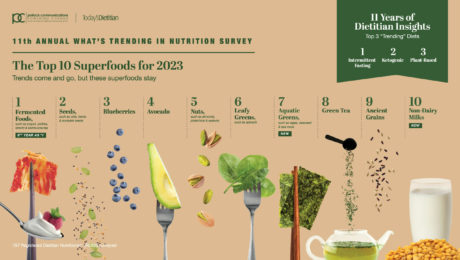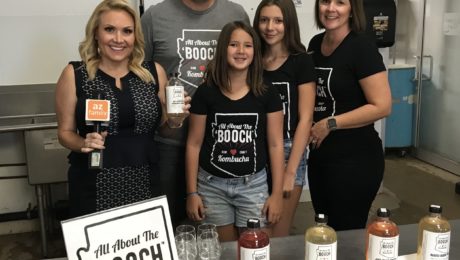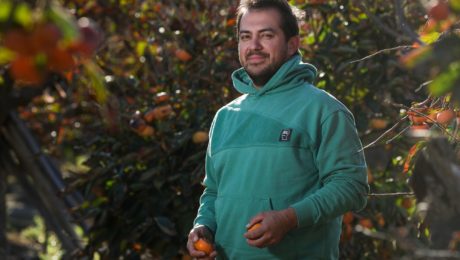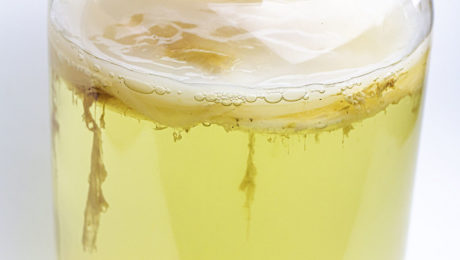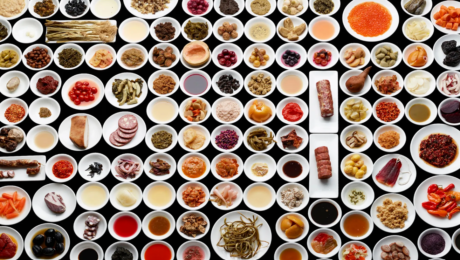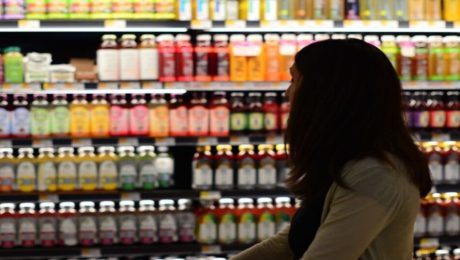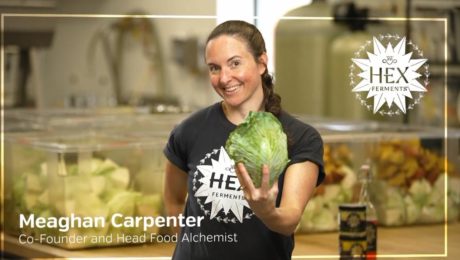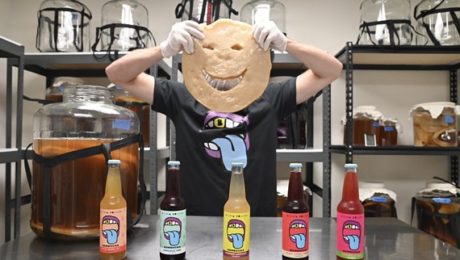Fermented Foods No. 1 for 6th Year
Fermented foods take the top spot in Today’s Dietitian annual list of superfoods for the 6th year in a row.
Registered Dietitian Nutritionists (RDNs) were polled by Today’s Dietitian and Pollock Communications on their views on superfood predictions and grocery shopping habits. The results, published in the 11th annual “What’s Trending in Nutrition” survey, predict how and what consumers will eat. Since 2019, health became the key focus of the superfood list. Striking this year is the new focus on affordable and accessible food.
“After years of keeping immune health and comfort top-of-mind during the COVID-19 pandemic, consumers are back to prioritizing affordability and convenience when shopping for food,” Pollock Communications shared in a statement.
This shift is attributed to the higher cost of groceries “as consumers navigate the cost-of-living crisis.” RDNs predict top purchase drivers are affordability and value (70.4%), ease of accessibility and convenience (59.1%) and immunity support (57.6%).
“Consumers are more aware than ever of the benefits food can provide for gut health and immune function. As consumers face higher costs at the grocery store, they’ll be looking for affordable food and snacks that still provide valuable health benefits,” says Louise Pollock, president of Pollock Communications. “Our survey findings reflect how consumer behaviors are shifting as Covid-19 restrictions loosen, remote work remains and inflation rises – from prioritizing affordable foods to continued interest in snacking.”
The survey highlights fermented food products yogurt, kimchi, kombucha and pickled vegetables. Also noteworthy is that, for the first time in 11 years of conducting the survey, the entire superfoods list is plant-based. The top ten include:
- Fermented Foods
- Seeds, such as chia and hemp
- Blueberries
- Avocados
- Nuts, including pistachios, almonds and walnuts
- Leafy Greens, such as spinach
- Aquatic Greens, such as algae, seaweed and sea moss
- Green Tea
- Ancient Grains
- Non-Dairy Milks
Plant-based diets are becoming more popular, and RDNs note it’s the third most popular diet after intermittent fasting and keto. However, only 1% of RDNs say they would recommend meat alternatives because they are highly processed products.
RDNs are also concerned about where consumers are getting their nutrition information. Social media platforms such as TikTok, Instagram and Facebook are “rife with nutrition misinformation,” but they’re where many consumers turn for nutrition advice.
“Social media influencers are talking about wellness and nutrition at rates never seen before, but people struggle to differentiate between credible information and myths. This only supports the need to amplify credible sources of nutrition information, like registered dietitian nutritionists,” says Mara Honicker, publisher of Today’s Dietitian. “With the survey in its 11th year, we are excited to continue to share insights from these experts in food and nutrition, at a time where the value of food is subject to more scrutiny.”
- Published in Health
Electric Kombucha
In the last few years, entrepreneurial scientists have found creative uses for the kombucha SCOBY mother used to make new products. The latest: using SCOBY as a malleable surface to print circuit boards.
Researchers at the University of the West of England, Bristol, discovered the dried mats made from the cellulose of the SCOBY make flexible, cheaper, lighter and more eco-friendly circuit boards for electronics. And because these kombucha mats are non-conductive, they’re also safer. Andrew Adamatzky, professor at the university and one of the researchers, says they tested the SCOBY mat with tiny LEDs on the circuits, which still worked after stress tests.
“Nowadays kombucha is emerging as a promising candidate to produce sustainable textiles to be used as eco-friendly bio wearables,” Adamatzky, tells New Scientist. “We will see that dried — and hopefully living — kombucha mats will be incorporated in smart wearables that extend the functionality of clothes and gadgets. We propose to develop smart eco-wearables which are a convergence of dead and alive biological matter.”
Researchers hope kombucha electronics can soon be used as wearable electronics, like heart rate monitors.
The discovery is another in a unique lineup of SCOBY-based innovations. Alternative “leather” closes made from SCOBY were designed by an Iowa State professor in 2016, SCBOY water purifiers were designed by a Massachusetts Institute of Technology and Imperial College London scientists in 2021 and a SCOBY wood alternative called Pyrus was designed by University of Illinois student in 2021.
Read more (ARS Technica)
- Published in Science
Pandemic Pushes Kombucha Biz to Close
Arizona-based kombucha brand All About the Booch is shutting down after five years, citing the pandemic and inflation. Co-owner Shelley Aul opened up about the decision, shining a light on the struggles of running a small, craft fermentation business.
“I really think if the pandemic hadn’t happened, we might not be closing,” Aul says. She shared why the brand was closing in a series of Instagram videos on the brand’s page. “We were on this trajectory going into 2020 and when the pandemic hit, it completely stunted our growth. And we’ve struggled to come back from that.”
Supply prices increased astronomically since the brand first launched. In 2017, the 16 ounce, clear, glass bottles used to sell their fermented tea cost 33 cents each. Today, they are 96 cents each. Aul points out that’s just the cost of the bottle, not the label, lid, seal, tea or fruit. Those prices went up, too, as did other business expenses, like insurance and gas.
“We can only adjust our pricing so much before we’re too high for you to be able to buy our kombucha,” Aul says. “It got to a point where we don’t really feel comfortable raising our prices again and we’re making less and less with our sales.”
Sales revenue has changed in that time. All About the Booch was an early adopter of Arizona-brewed kombucha, scoring several large accounts in 2019 with keg sales at offices, restaurants, bars and stadiums. The Aul’s were expecting double the sales in 2020 – but then the pandemic hit. And sales took a huge dip.
They switched to consumer sales at farmers markets, which “honestly saved us. We had a great experience in the farmers markets, we recoupled a lot of those initial losses.”
But, 2-3 years after the pandemic started, their wholesale accounts are not coming back. Aul says she couldn’t pin the reasoning to one thing – she assumes wholesalers are struggling or the economy is bad – but it became “really inconsistent and hard to depend on.”
Aul, who ran the brand with her husband Duane, notes their personal life changed, too. Aul kept her corporate job while building All About the Booch, working an additional 20-30 hours after her 40 hours a week job on the kombucha side hustle. “We realized we want to spend our time differently,” she says, adding she hopes to travel and enjoy her kids more without the pressure of the kombucha brand.
The All About the Booch account will still be active as the Aul’s transition from commercial brewers to home brewers.
- Published in Business
Ugly Fruit into Delicious Kombucha
A new Los Angeles-based kombucha brand has a unique approach to their fermented tea. Sunset Cultures owner and chef Balo Orozco (pictured) uses the unsold or “ugly” fruits and vegetables from local farms into “some of L.A.’s most creative kombuchas, hot sauces and condiments.”
Staying true to his goal of curbing food waste and helping local farmers is certainly not easy. Orozco spends much of his days driving across the state to pick up boxes or pallets of produce that would otherwise be thrown away or composted. Another challenge: the kombucha flavors and condiment offerings change with the amount and type of surplus product Orozco receives from farmers. (Sunset Cultures does consistently sell four core kombucha flavors).
Orozco’s roots are in the restaurant industry. As a chef, he was alarmed at the amount of kitchen waste restaurants would throw away. His specialty soon switched to reusing kitchen scraps and fermenting house-produced condiments. After the last restaurant he worked at folded due to the pandemic, he began working on Sunset Cultures.
Sunset Cultures products are always changing and adapting based on available products. In the last six months, Sunset Cultures began making jam, a solution to their own wasted byproduct from the lightly boiled strawberries used in their kombucha.
Sunset Cultures products are currently sold in 40 retail shops and online, with plans to expand to other cities in 2023.
Read more (Los Angeles Times)
- Published in Food & Flavor
Exploring Culinary Bubbles
Serious Eats features a series of articles on fermented drinks in their latest digital issue, “Bubbles.” Bubbles are the “negative space” in food which contribute to food flavor and fermentation. The long-form articles dive into kombucha, tepache, coffee and explore how the beer industry is adapting with a CO2 shortage.
“It’s easy to look past the pockets of air that occupy so much of what we eat, but food as we know it wouldn’t be recognizable without them,” reads the editor letter describing the new article series. “Bubbles inflate breads, lighten cakes and batters, aerate creams and mousses, and add fizz to so many drinks. They’re a byproduct of fermentation, a critical determinant of texture, the thing that makes your eyes water as you let out an Aaahhhhhhhhhh after that first spicy sip of cold soda or beer. So much of what defines our food is all the stuff that’s not there.”
Read more (Serious Eats)
- Published in Food & Flavor
Fermentation Tops Restaurant Trend List
“Pickling and fermenting preparations are having a moment,” reads the 2023 Foodservice Industry Trend Report from Technomic. The food trend forecaster’s annual list rates fermentation “The Power of Preserving” as one of their top seven industry trends.
“Not only do these preparations promote ingredient preservation and health connotations but they also allow for unique culinary experimentation,” the report reads.
Technomic anticipates fermented food crafts at the bar, like kombucha, miso and sake. But lacto-fermentation, they predict, will also make its way to the menu, as restaurants detail their preserving processes “to provide consumers with a level of scientific transparency.”
Read more (Technomic)
- Published in Food & Flavor
Lawsuit Alleges Kombucha Exceeds Alcohol Limit
Four consumers — three underage — filed a lawsuit alleging Tribucha Inc. misled them into buying non-alcoholic kombucha that contains twice the alcohol permitted for non-alcoholic beverages.
The 30-page class action lawsuit contends Tribucha has been sold to “unsuspecting children, pregnant women, persons suffering with alcohol dependence issues, and a host of other people for whom alcoholic consumption may pose a grave and immediate safety and/or health risk.” The lawsuit says the North Carolina-based brand has a small disclaimer on the label stating that Tribucha “contains a trace amount of alcohol,” but an investigation proved otherwise. Plaintiffs used a lab accredited by the Alcohol and Tobacco Tax and Trade Bureau (TTB) to test the kombucha and found it is over 0.5% alcohol by volume, which classifies it as alcoholic.
The complaint continues: “Because Tribucha Kombucha does not include any warnings concerning the significant presence of alcohol, consumers, including Plaintiffs, are led to believe that the products are safe to consume when driving a car, operating machinery, and taking with potentially a deadly cocktail of incompatible medications.”
In 2010, Whole Foods and other retailers pulled kombucha off shelves as the TTB investigated whether alcohol levels in kombucha were higher than what was printed on the label. And since then, consumers — and even other brands — have filed lawsuits against various kombucha brands, alleging alcohol levels higher than indicated.
Kombucha can keep fermenting after it’s made, as the yeasts continue to eat sugars. Under current law, if kombucha leaves a processing facility at 0.4% ABV, but increases to over 0.5% by the time it’s placed on grocery store shelves, the brewer would have to pay federal alcohol taxes like a beer brand.
Kombucha producers fear constant repercussions from this law, says Hannah Crum, co-founder and president of Kombucha Brewers International (KBI), the trade organization for kombucha brewers.
Earlier this year, South Carolina’s Department of Revenue (DOR) categorized all kombuchas as alcoholic beverages. The state’s regulations set a maximum alcohol content for beverages but no minimum, so any fermented beverage with any alcohol content would be considered alcoholic. Since kombucha fermentation produces a trace amount of alcohol, a brewer would need to apply for a state alcohol license, and kombucha could not be sold to anyone under the age of 21. It contradicted the U.S. legal definition of an alcoholic beverage.
After kombucha industry leaders contacted the state’s DOR and the South Carolina Retail Association (SCRA) to share advice and resources, the regulation was amended to exempt kombucha. KBI’s leadership and legal counsel, along with producers Buchi Kombucha, GT’s Synergy Kombucha, Health Ade, Humm and Brew Dr. were involved.
Pending in Congress is the KOMBUCHA Act, legislation that would make kombucha beverages exempt from excise taxes intended for alcoholic beverages. The act proposes to raise the alcohol by volume (ABV) threshold for kombucha from its current level of 0.5% to 1.25%.
Reads a statement from KBI on the act: “These laws were never intended to make kombucha subject to taxes designated for beer. Passing the KOMBUCHA Act under the next appropriations bill will relieve this unnecessary burden on kombucha brewers. Only kombucha above that level (1.25%) will be subject to federal excise taxes when this Act becomes law.”
KBI has actively lobbied for the bill’s passage. Big kombucha brands (GT’s and Health-Ade) have actively supported the bill.
- Published in Business
PBS Features HEX Ferments
Baltimore-based HEX Ferments was the star of the PBS show START UP. The series highlights small American business owners, chronicling what it takes to start a successful business.
During the episode, HEX Ferments co-founder Maegan Carpenter schooled START UP host Gary Bredow on ferments and gut health. She explained how the modern gut microbiome has been eroded by antibiotics, but fermented foods help to populate and repopulate the digestive system with good bacteria.
“What you’re getting essentially is a vegetable that’s been fermented in a blanket of bacteria that’s indigenious to our bodies: lactobacillus,” Carpenter explained, while Bredow sampled HEX’s seasonal Spirit Berry kombucha and Pizza Kraut sauerkraut.
A former art professor, Carpenter and her co-founder husband Shane, a former wedding photographer, never planned to start a fermentation business. Carpenter began teaching people how to use produce from their local community garden, offering tastings of the vegetables she fermented. Orders for her ferments started showing up in her mailbox. Carpenter said she thinks the demand came from “being open with people and showing people something that has been taken out of our culture for so long.”
Bredow added about modern food convenience: “It’s scary to think about if that convenience goes away, are we going to have a society of people incapable of watching food rot right in front of them.” Carpenter responded: “I think we already do.”
HEX Ferments will be expanding into a new, larger retail space later this year, HEX Superette. The space includes a kombucha taproom, small restaurant area to serve small plates, space to teach education classes and a local food marketplace. HEX Superette, Carpenter said, will “answer the question, ‘How do I eat this?’ because after 10 years of making fermented foods, we often get that question.”
Bredow concluding the episode noting that fermentation was born out of food scarcity, something today’s generation did not understand until the Covid-19 pandemic.
“Our ancestors planned for the future knowing that self sufficiency can mean the difference between life and death. Maybe it’s time to revisit the skills that allowed past generations to live with less fear and reliance on a system that always seems to be on the brink of collapse,” Bredow said. “I love what Meghan and Shane are doing. They’re not only offering up tasty and healthy foods, they’re reminding us how important it is to learn this lost craft before it’s too late…they’re offering fermentation classes. To me, this really is purpose. A focus on doing well and doing good for the world around them.”
- Published in Business, Food & Flavor
Brewing Kombucha for the Haters
In a crowded kombucha marked, Bitchin’ Boucha founder Jason Smith has a unique philosophy to selling the fermented tea. He’s not going after kombucha die-hards, he’s making it for people who don’t like kombucha.
The Richmond, Virginia brand launched eight years ago when Smith tasted kombucha while on a fast from alcohol and processed sugar. He liked it, but thought he could make it taste better.
“Other kombuchas can be too vinegary because most of the ones in stores are bottled and unpalatable,” explains Smith. “Shipping and refrigerating it for too long can kill the flavor because the kombucha is a living thing. Some companies even pasteurize it so it can’t ferment even more, and it kills all the live organisms which defeats the purpose. I make kombucha for people who don’t like kombucha. I want to show people that it can taste good.”
Bitchin’ Boucha debuts a new seasonal flavor every few months. And every batch of Bitchin’ Boucha must pass the taste test with his own kids. Smith says the process to create a new flavor, secure health department approval and bottle it takes two months. Currently, Bitchin’ Boucha produces 15-20 kegs of kombucha a week. Their first official employee besides Smith will start this month, with Smith aiming to sell the kombucha in a grocery store.
Read more (Style Weekly)
- Published in Food & Flavor
Chicago: A Fermentation Hub
If you still think of hot dogs and deep dish pizza as the icons of Chicago’s culinary scene, you need to think again. The so-called Capital of the Midwest is a hub of innovation in the food industry. Chicago has the largest food and beverage production in the U.S., with an annual output of $9.4 billion. Food startup companies in the region raised $723 million in venture capital last year.
“Chicago is one of the most diverse cities for eating,” says Anna Desai, Chicago-based influencer of Would You Like Something to Eat on Instagram. ”Our culinary scene is constantly elevating and evolving. We are always just a neighborhood or tollway away from experiencing a new culture and cuisine. I’m most excited when I find an under-the-radar spot or discover a maker who can pair flavors and ingredients that get you curious and wanting more.”
Desai started her blog in part because she wanted to champion the Asian American and Pacific Islanders (AAPI) community in the Chicago food and beverage scene. “Food has long served as a cultural crossroad,” she adds, and Chicago’s multicultural cuisine exemplifies that sentiment.
Chicago is home to some of the most creative minds in fermentation, from celebrity chefs, zero waste ventures, alternative protein corporations and the world’s largest commercial kefir producer. There are dozens of regional and artisanal producers lacto-fermenting vegetables, brewing kombucha and experimenting with microbes in food and drink.
“Chicago is a great food city in its own right, so naturally there is a ton of talent in the fermentation space,” says Sam Smithson, chef and culinary director of CultureBox, a Chicago-based fermentation subscription box. “The pandemic’s effect on restaurants has also spawned a new wave of fermenters (ourselves included) that are looking for a path outside the grueling and uncertain restaurant structure to display our creative efforts. This new wave is undoubtedly community-motivated and concerned more with mutual aid than competition. There is a general feeling that we are all working towards the same goal so cooperation and collaboration is soaring and we are seeing incredible food come from that.”
Flavor is King
Flavor development is still the prime motivation for chefs to experiment with fermentation. A good example is at Heritage Restaurant and Caviar Bar in Chicago’s Humboldt Park neighborhood.
“Fermentation has been a cornerstone of the restaurant since its inception,” says Tiffany Meikle, co-owner of Heritage with her husband, Guy. “With the diverse cuisines we pull from, both from Eastern and Central Europe and East Asia, we researched fermentation methodologies and histories, and started to ‘connect the dots’ of each culture’s fermentation and pickling backgrounds.”
Menus have included sourdough dark Russian rye bread, toasted caraway sauerkraut, kimchi made from apples, Korean pears and beets and a kimchi using pickled ramps (wild onions). Heritage has also expanded their fermentation program to the bar, where they’ve created homemade kombucha, roasted pineapple tepache, sweet pickled fruits for cocktail garnishes, and kimchi-infused bloody mary mix.
“It’s fascinating to me that there are so many ingredients you can use in a fermented product,” says Claire Ridge, co-founder of Luna Bay Booch, a Chicago-based alcoholic kombucha producer. “People are really experimenting with interesting ingredients in kombucha…I have seen brewers do some of the wildest recipes and some recipes that are very basic.”
Innovating Food
Chicago-based Lifeway Kefir is indicative of the innovation taking place in the city. Last year the company expanded into a new space: oat-based fermentation, launching a dairy-free, cultured oat milk with live and active probiotics.
“We’ve spent so many years laying the groundwork in fermented dairy,” says Julie Smolyansky, CEO. “Now we’re experimenting and expanding to see what’s over the next horizon, though we’ll always have kefir as our first love.”
Chicago is home for two inventive fermented alternative protein startups: Nature’s Fynd and Hyfé Foods. Both companies were born out of the desire to create alt foods without damaging the environmental.
“Conscious consumerism is a trend that’s driving many people to try alternative proteins, and it’s not hard to understand why,” says Debbie Yaver, chief scientific officer at Nature’s Fynd. The company uses fermentation technology to grow Fy, a nutritional fungi protein. “Fungi as a source of protein offer a shortcut through the food chain because they don’t require the acres of land or water needed to support plant growth or animal grazing, making fungi-based protein more efficient to produce than other options.”
Alternative foods outlasting the typical trend cycle is a challenge for companies like Nature’s Fynd. When grown at scale, Fy uses 99% less land, 99% less water and emits 94% fewer greenhouse gasses than raising beef. But, to make an impact, “we need more than just vegans and vegetarians to make changes in their diets,” Yaver adds.
Waste Not
Numerous companies are using fermentation as a means to eliminate waste. Hyfé Foods, another player in the alternative protein space, repurposes sugar water from food production to create a low-carb, protein-rich flour. Fermentation turns a waste product into mycelium flour, mycelium being the root network – or hyphae (hence the company name) — of mushrooms.
“[We’re] diverting input to the landfill and reducing greenhouse gas emissions at scale,” says Michelle Ruiz, founder. “Hyfé operates at the intersection of climate and health, enabling regional production of low cost, alternative protein that reduces carbon emissions and is decoupled from agriculture.”
Symmetry Wood is another Chicago upcycler. They convert SCOBY from kombucha into a material, Pyrus, that resembles exotic wood. Founder Gabe Tavas says Pyrus has been used to produce guitar picks, jewelry and veneers. Symmetry uses the discarded SCOBY from local kombucha brand Kombuchade.
Many area restaurants and culinary brands also use fermentation to preserve food for the long Chicago winters, when local produce isn’t available. Pop-up restaurant Andare, for example, incorporates fermentation into classic Italian dishes.
“Finding ways to utilize what would otherwise be waste products inspired our initial dive into fermentation. The goal is not just to use what’s leftover, but to make it into something delicious and unique,” says Mo Scariano, Andare’s CEO. “One of our first dishes employing koji fermentation was a summer squash stuffed cappellacci served with a butter sauce made from carrot juice fermented with arborio rice koji. Living in a place with a short grow season, preservation through fermentation allowed us access throughout the year to ingredients we only have fresh for a few weeks during the summer.”
Industry Challenges
Despite growing interest and increasing sales, fermenters face some significant hurdles.
Smithson at CultureBox says he sees that consumers are open to unorthodox, less traditional ferments. Though favorites like kombucha and sauerkraut dominate the market, “their share is being encroached on by increasingly more varied and niche ferments.” But getting these products to market can be a challenge. Small-scale, culinary producers are challenged by the regulatory hoops they need to jump through to legally sell ferments – especially unusual ones a food inspector doesn’t recognize.
“The added layer of city regulations on top of state requirements, sluggish health department responses, and inflexible policy chill the potential of small producers,” Smithson says. But he highlights the recently-passed Home-to-Market Act of Illinois as positive legislation helping startup fermenters.
Consumer awareness and education are also vital. “Many longstanding and harmful misconceptions on the safety and value of fermented products still exist,” Smithson says.
Matt Lancor, founder and CEO of Kombuchade makes consumer education a core part of marketing, to align kombucha as a recovery drink.
“Most mainstream kombuchas are marketed towards the yoga/crystal/candle crowd, and I saw a major opportunity to create and market a product for the mainstream athletic community,” he says. “We’re on a mission to educate athletes and the general public about these newly discovered organs [the gut] – our second brain – and fuel the next generation of American athletes with thirst quenching, probiotic rich beverages.”
Product packaging provides much of a consumer’s education. Jack Joseph, founder and CEO of Komunity Kombucha, says simplicity is key.
“People are more conscious of their health now, more than ever before,” he says. “So now it comes down to the education of the product and creating something that is transparent and easy for the consumer to digest.”
Sebastian Vargo of Chicago-based Vargo Brother Ferments agrees.
“Oftentimes food is considered ‘safe’ due to lack of microbes and how sterile it is,” he says. “Fermentation eschews the traditional sense of what makes food ‘safe’. We need to create a set standardized guide for fermented food to follow, and change our view of living foods in general. One of the brightest spots to me is the fact that fermentation is really hitting its stride and finding its place in the modern world, and I don’t see it going anywhere but up in the near future.”
- Published in Business, Food & Flavor

